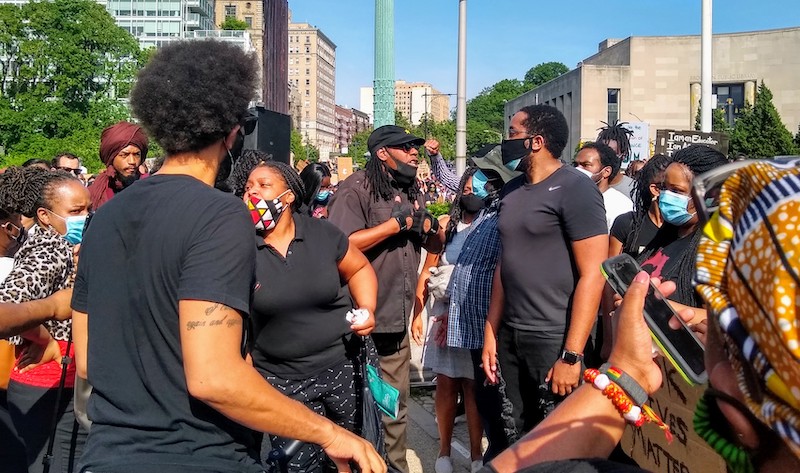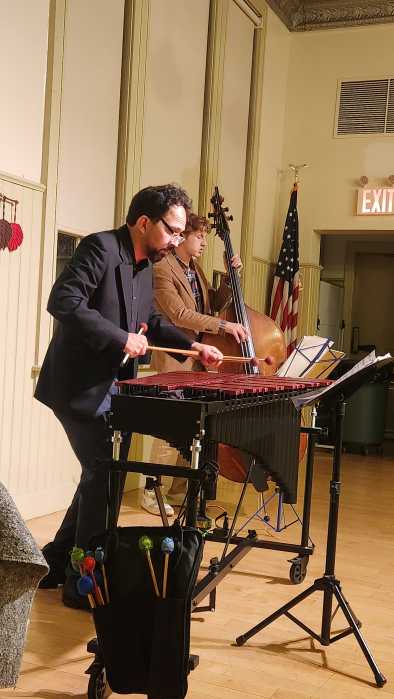The ‘Soldiers and Sailors’ Arch, erected in 1889 to honor defenders of the Union Army in the Civil War, stood high above the crowds of impassioned protesters and lawmakers below yesterday. It was another hot day, and the borough’s downtown area was packed with people speaking out against police and social brutality.
State Senator Zellnor Myrie (D 20th- Brownsville, Crown Heights, East Flatbush, Gowanus, Park Slope, Prospect Heights, Prospect Lefferts Gardens, South Slope, and Sunset Park) and Assemblymember Diana Richardson (D 43rd-Crown Heights, Prospect-Lefferts Gardens, Wingate and Flatbush) rallied members of the community, advocates, members of the Black, Puerto Rican, Hispanic & Asian Legislative Caucus and it’s chair Assemblymember Tremaine Wright (D-56, Bedford-Stuyvesant and Northern Crown Heights), and other city council officials for a massive gathering in support of legislative police reform.
Attendees by and large enthusiastically packed the plaza to listen to all the orators, but one or two dissenters in the crowd felt like legislation wasn’t enough to combat centuries of entrenched policing tactics against Blacks.
“Bills ain’t nothin but writing on a piece of paper, that don’t protect me from a gun,” said Bedstuy/Crown Heights native, La Aaron Daquane Mealy Bey, “When they pull a gun on me, put in my face and tell me to get the [expletive] out my car–A bill ain’t going to protect me.”
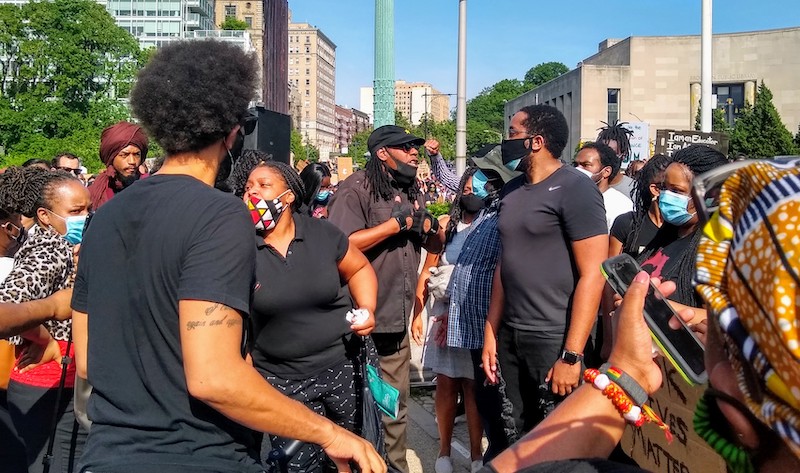
Myrie began his speech, mirroring some of the pure anger and frustration of the crowd, with his harrowing pepper spraying and arrest by the NYPD at a George Floyd protest. He then went on to speak about the basis of modern-day policing being rooted in tactics created during American slavery.
“We went from slave patrols to slave codes to Jim Crow to police patrols, and that is where we are today,” said Myrie passionately, “Think about how embedded and enmeshed brutality is in the DNA of this country. When we say Black Lives Matter, you think that’s anti-police. That when we say we want to end police brutality, you say that’s anti-police!”
According to the history of law enforcement, white masters lived in constant fear of slave rebellions which led to the establishment of slave patrols in 1704 in South Carolina. For 150 years, these often violent militias were meant to chase down escaping ‘property’ and return them to their owners, provide a “form of organized terror” to discourage slave revolts, and discipline slave workers outside of the law. Slave patrols, like county sheriffs and constables, eventually were adapted by the colonies into the foundations of American law enforcement.
“There is a natural distrust based on the facts,” said Myrie, “It is legal to racially profile in the State of New York, today we have a bill that says let justice breathe, we will outlaw racial profiling.”
Myrie highlighted several bills out of the 13 introduced, such as bans on racial profiling and racially motivated false 9-1-1 complaints, that he and his cohorts are demanding to be passed.
The Right to Monitor Act allows videotaping of an arrest by citizens, while similar bills expand the mandatory use of body cameras by law enforcement of all kinds, including the New York State and Metropolitan Transit Authority police departments.
Other bills, in direct response to the deaths of Eric Garner in 2014 and George Floyd, establish the crime of strangulation or the chokehold. These bills also mandate that should a person need medical attention for someone under arrest it has to be given and failure to do so is a crime.
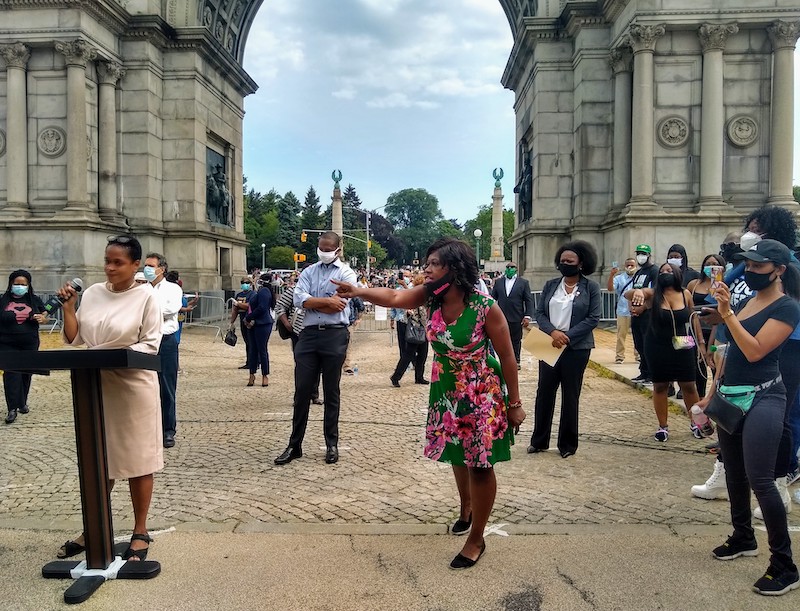
“I was elected to legislate. It feels good to stand out here in this sun. We have a responsibility to the people that we represent to go to Albany to pass laws on behalf of each and every individual in the state of New York,” said Assemblymember Latrice Walker (D55-Brownsville), “From Buffalo Avenue to Buffalo, New York, from Rochester Avenue to Rochester, New York, from Albany Avenue to Albany, New York, Black Lives Matter.”
The package of bills also deals distinctly with oversight and accountability in the police department, such as the Repeal of 50-A and a permanent Office of the Special Prosecutor that deals with disciplinary proceedings outside of the police department itself.
Some of the laws Myrie, Richardson and others touted have been on the docket for police reform for years, said Brooklyn Branch NAACP President L. Joy Williams, but were never passed. “We have a moment, and this is when we need to fight so we can win,” said Williams.
“We knew it was important to be here,” said Richardson in her speech, “because if the coronavirus doesn’t kill us, the cops will.”
Richardson spoke about the glaring racial disparity in the policing and healthcare system that led to high levels COVID-19 infections and deaths in the Black and Brown communities across the nation.
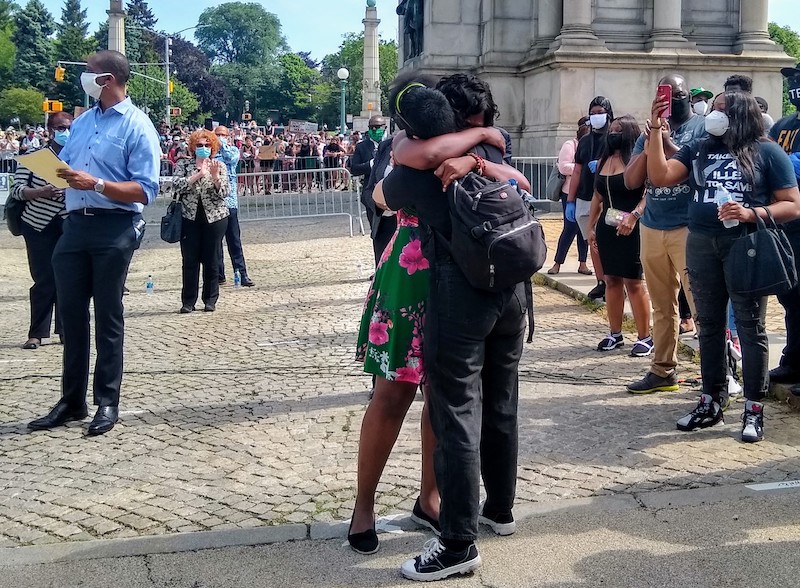
She said that as Mayor Bill De Blasio tried to speak up about policing the NYPD turned their backs on him, effectively holding the Mayor hostage enough to turn his back on his communities.
She dared him and Governor Andrew Cuomo not to sign the anti-choking bill.
“I have a message for Governor Cuomo,” shouted Richardson, “use your power. And as we put forth this legislative package don’t you dare undermine the Caucus’ agenda. Pass the bills.”


